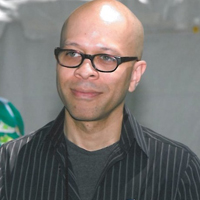Why the ACLU is Afraid of School Vouchers
An ACLU blog post this month questioning the intentions of School Choice Week and the policy impact of “vouchers” was disappointing, particularly in its framing of school vouchers and voucher advocates as one-trick policy ponies. More important, however, it just shows the fundamental misunderstanding of “choice” in American education. Which is to say, there’s a great deal of it unless you are poor.
To expand, those who don’t believe in vouchers (and to clarify, vouchers are not “schools,” they are a way to pay for something) rarely understand them and often mischaracterize them. If school vouchers are “bad” those who don’t believe in them should be out leading the charge against other systems that empower low-income people to shop where they want…like food stamps for instance.
But notably, the current public system is already the biggest choice system in America, where your ability to access a great “free public” school is most likely a function of your ability to participate at a high level in the housing market. The truth is for most folks their “school voucher” is a mortgage and hence the public schools are neither free nor completely public. Distributing quality education through the housing market is about the least fair way to do it, and is most punitive to the low-income families in, say, Washington, D.C. who are using school vouchers through the Opportunity Scholarship Program as a way to ensure a better future for their children.
But notably, the current public system is already the biggest choice system in America, where your ability to access a great “free public” school is most likely a function of your ability to participate at a high level in the housing market. The truth is for most folks their “school voucher” is a mortgage and hence the public schools are neither free nor completely public.
As for discrimination, the ACLU sadly misses two more realities hiding in plain sight. First is that though private schools may set entry standards on their own, voucher legislation routinely requires participating schools to admit students by lottery. They also routinely cap income participation at or near the poverty level, ensuring only the lowest-income students are eligible. This says nothing of America’s sad state of integration where public schooling is concerned.
As the Harvard Civil Rights project showed in 2003, today’s public schools are more segregated than they were in 1970. If the ACLU really wanted to focus on segregation or discrimination in the “public schools” they would crusade for the elimination of all school district boundaries and the suspension of all of the nation’s magnet school programs, which systematically discriminate based on ability and screen entry through testing as a routine matter.
The ACLU has an important role to play and in many things their work is laudable. But in this the reasoning and opposition are both flawed. Eleven of 12 randomized-controlled trial studies (two of which studied the Milwaukee Parental Choice Program) show choice programs improved student performance. None of these shows negative effects. In any other public policy, these results would argue for expansion, not opposition.
And there is always this: Unlike a chronically “underperforming” neighborhood school, which demands attendance unless you can buy your way out as a matter of law, school vouchers don’t require any mother or father or child to use them. Perhaps the problem with voucher opposition is that it always starts with an acceptance that if a program is enacted and school vouchers are given, folks will want them.




